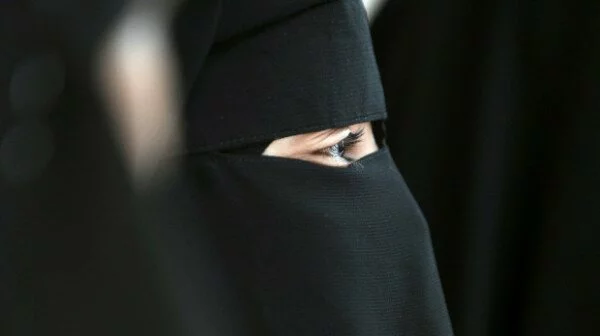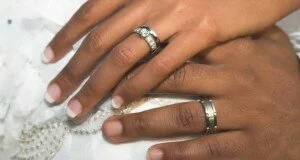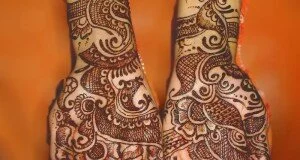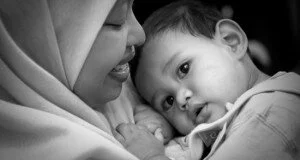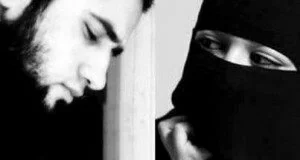For fasting, women have some additional rules that apply to them due to issues such as pregnancy, menstrual cycles, and breast feeding. The following provides some insight into those matters.
Making up of fasts for women who are pregnant, breastfeeding, or menstruating
The scholars are of the opinion that women should make up the fasts should she skip because of those conditions. This is based on the Quranic verses:

“and whoever is ill or on a journey, the same number [of days which one did not observe Sawm (fasts) must be made up] from other days” [Surah al-Baqarah 2:185]
Pregnant woman and sickness
Some ahadith and scholarly interpretation indicate that a pregnant woman who is unable to fast because of her pregnancy can make her fasts at a later date. Consider the following:
Allah has waived half of the prayer and fasting from the traveler, and from pregnant and breastfeeding women.” Narrated by al-Nasaa’i, 2274; classed as hasan by al-Albaani in Saheeh Sunan al-Nasaa’i
The view is that she has to make up the fasts only and does not have to feed poor people. This is the most correct view in my opinion, because the situation of pregnant and breastfeeding women is no different to that of sick people and travelers, so they have to make up the fasts only. From al-Sharh al-Mumti’, 6/362
[For the condition when a woman is pregnant or breastfeeding and if she fears for the health of her child], in this situation it is better for her not to fast, and it is makrooh (undesirable) for her to fast. Some of the scholars stated that if she fears for her child, it is obligatory for her not to fast and it is haraam for her to fast. Al-Mirdaawi said in al-Insaaf (7/382):
Ibn ‘Aqeel said: If a pregnant woman or a breastfeeding mother fears for her pregnancy or her child, then it is not permissible for her to fast in this case, but if she does not fear for her child then it is not permissible for her not to fast.
However, for cases when a pregnant woman or the one who is breastfeeding is in good health, she is supposed to fast. Consider the following:
“It is not permissible for a pregnant woman or breastfeeding woman not to fast during the day in Ramadan unless they have an excuse. Shaykh Ibn ‘Uthaymeen, Fataawa al-Siyaam (p. 161)
Shaykh Ibn ‘Uthaymeen (may Allah have mercy on him) was also asked in Fataawa al-Siyaam (p. 162) about a pregnant women who fears for herself or her child, and does not fast – what is the ruling? He replied by saying: Our answer to this is that one of two scenarios must apply in the case of a pregnant woman. The first is if she is healthy and strong, and does not find fasting difficult, and it does not affect her fetus. In this case the woman is obliged to fast, because she has no excuse for not doing so (fasting). The second is where the pregnant woman is not able to fast, either because the pregnancy is advanced or because she is physically weak, or for some other reason. In this case she should not fast, especially if her fetus is likely to be harmed, in which case it may be obligatory for her not to fast. If she does not fast, then like others who do not fast for a valid reason, she has to make up the days when that excuse no longer applies. When she gives birth, she has to make up those fasts after she becomes pure from nifaas. But sometimes the excuse of pregnancy may be lifted but then immediately followed by another excuse, namely breastfeeding. The breastfeeding mother may need food and drink, especially during the long summer days when it is very hot. So she may need not to fast so that she can nourish her child with her milk. In this case we also say to her: Do not fast, and when this excuse no longer applies, then you should make up the fasts that you have missed. Shaykh Ibn Baaz said in Majmoo’ al-Fataawa (15/224)
With regard to pregnant women and breastfeeding mothers, it is proven in the hadeeth of Anas ibn Maalik al-Ka’bi, narrated by Ahmad and the authors of al-Sunan with a saheeh isnaad, that the Prophet (peace and blessings of Allah be upon him) granted them a dispensation allowing them not to fast, and he regarded them as being like travelers. From this, it is known that they may not fast but they have to make up the fasts later, just like travelers. The scholars stated that they are only allowed not to fast if fasting is too difficult for them, as in the case of one who is sick, or if they fear for their children. And Allah knows best. Fataawa al-Lajnah al-Daa’imah (10/226)
Woman and menstrual cycles
Here are some of the scholars’ guidance on women and their menstrual cycles as they relate to Ramadan and fasting.
Shaykh Ibn ‘Uthaymeen (may Allah have mercy on him) was asked about a woman whose period came, then she became pure and did ghusl, then after she had prayed for nine days, she started to bleed again, so she did not pray for three days, then she became pure and prayed for eleven days, then her period came again as usual. Should she repeat the prayers she offered during those three days or should they be regarded as part of her period?
He replied: When the period comes it is hayd (menstruation) regardless of whether a long time or a short one has passed between it and the previous period. If a woman has her period then becomes pure, then after five days, or six, or ten, her period comes again, she should stop praying because this is hayd. This applies all the time. Every time she becomes pure then her period comes again, she has to stop praying etc. But if she bleeds continually and it only stops for a short while, then she is mustahaadah (one who suffers from istihaadah or non-menstrual vaginal bleeding), and in that case she should only stop praying for the duration of her normal menses. Majmoo’ Fataawa al-Shaykh Ibn ‘Uthaymeen, 11 Shawwaal 230.
Shaykh Ibn ‘Uthaymeen was asked in Fataawa Arkaan al-Islam (p. 455): A young girl got her period and she fasted the days of her period out of ignorance. What does she have to do?
He replied: She has to make up the days that she fasted during her period, because fasts observed whilst menstruating are not accepted and are not valid, even if she was ignorant of that, and there is no limit to the time when they can be made up. Here is a case which involves the opposite scenario: A woman started her periods when she was young, and she was too shy to tell her family, and she did not fast Ramadan. This woman has to make up the month that she did not fast, because once a woman starts her periods she becomes mukallifah (accountable for her deeds), because menstruation is one of the signs of having reached adolescence. He was also asked about a woman who did not make up the days from her period in Ramadan until she owed nearly two hundred days, and now she is sick and old and cannot fast – what should she do? He replied: If this woman will be harmed by fasting as mentioned in the question, because she is elderly and sick, then she should feed one poor person for each day. She should calculate how many days she owes from the past and feed one poor person for each day. Fataawa al-Siyaam, p. 121.
Allah says in the Quran:

And there is no sin on you concerning that in which you made a mistake, except in regard to what your hearts deliberately intend” [Surah al-Ahzaab 33:5]
“Prophet (peace and blessings of Allah be upon him) said: “Allah has forgiven my ummah for mistakes, what they forget and what they are forced to do.” Narrated by Ibn Maajah, 2053; classed as saheeh by al-Albaani in Saheeh Ibn Maajah.
Shaykh Ibn ‘Uthaymeen (may Allah have mercy on him) was asked about a woman who fasted when she was unsure whether her period was over, then when morning came she saw that it had indeed ended. Does her fast count even though she was not certain that her period had ended?
He replied: Her fast does not count, and she has to make up that day, because the basic principle is that the menses was still there, and her starting to fast when she was not certain that her menses was over means that she started to do an act of worship when she was uncertain as to whether one of the conditions of it being valid was fulfilled or not, and this means that it does not count. End quote from Majmoo’ Fataawa al-Shaykh Ibn ‘Uthaymeen (19/107).
Aa’ishah said: Faatimah bint Abi Hubaysh came to the Prophet (peace and blessings of Allah be upon him) and said: “O Messenger of Allah, I am a woman who experiences istihaadah and I do not become pure. Should I give up praying?” The Messenger of Allah (peace and blessings of Allah be upon him) said: “No. That is just a vein, and it is not menses. When your menses comes, then stop praying, and when it ends, then wash the blood from yourself and pray.” Narrated by al-Bukhari, 226; Muslim, 333.
Shaykh Muhammad ibn Saalih al-‘Uthaymeen (may Allah have mercy on him) said, explaining the phrase “that is just a vein”:
This indicates that if the blood which is flowing is blood from a vein – which includes bleeding that results from surgery – then that is not regarded as menses, so the things that become haraam in the case of menses are not haraam in this case, and a woman has to pray and to fast if that happens during the day in Ramadan.” Majmoo’ Fataawa Ibn ‘Uthaymeen, 11/ question no. 226.
Ibn ‘Abbaas said: “If she sees blood that is heavy or copious, she should not pray, and if she sees the tuhr for a while, she should do ghusl.” Majallat al-Buhooth al-‘Ilmiyyah (12/102)
Umm ‘Atiyyah (may Allah be pleased with her) said: “We did not regard the brownish or yellowish discharge after the tuhr as being anything that mattered.” Narrated by Abu Dawood, 307; classed as saheeh by al-Albaani in Saheeh Abi Dawood.
 Muslim Blog Muslim Blog
Muslim Blog Muslim Blog